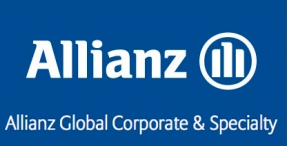All Posts in "Day: December 16, 2022"
Life insurance companies divided among MDAs for Group Life Cover
CAPTION:
Commissioner For Insurance, Mr Olorundare Sunday Thomas and The Head Of Service of the Federation, Folashade Mejabi Yemi-Esan
By Favour Nnabugwu
There are strong indications that almost all life insurance companies participated in the Group life for 89,000 civil servants of the federation
Yelutide: FG declares December. 26 & 27, 2022; January 2, 2023 holidays
A M. Best affirms Continental Re bbb- rating
CAPTION:
The Group Managing Director of Continental Reinsurance Plc, Mr Lawrence Mutsunge Nazare
By Favour Nnabugwu
AM Best has affirmed the Financial Strength Rating of B+ (Good) and the Long-Term Issuer Credit Rating of “bbb-” (Good) of Continental Reinsurance Plc (CRe) the operating holding company of the Continental Re group of companies. The outlook of these Credit Ratings (ratings) is stable.
The ratings reflect CRe’s balance sheet strength, which AM Best assesses as very strong, as well as its adequate operating performance, neutral business profile and marginal enterprise risk management.
CRe’s balance sheet strength is underpinned by risk-adjusted capitalisation at the strongest level, as measured by Best’s Capital Adequacy Ratio (BCAR). The company’s risk-adjusted capitalisation benefits from a relatively conservative investment strategy by asset class, although invested assets are somewhat concentrated in Nigeria and Kenya, which are both subject to high financial system risk.
Volatility of CRe’s risk-adjusted capitalisation in recent years is due to rapid business growth and has been a further offsetting factor. The company has taken steps to improve its capital management capabilities; however, its effectiveness will be tested over time as the company grows. Prospectively, if capital management is unsuccessful and there is sustained erosion of risk-adjusted capitalisation, there will be negative rating pressure.
CRe’s adequate operating performance assessment reflects its modest overall profitability and volatile underwriting performance, as demonstrated by its five-year (2017-2021) weighted average combined ratio of 99.3%, which ranged between 95.4% and 105.9% over this period. Underwriting results have been negatively impacted by the company’s high expense ratio, although a positive trend can be observed in recent years as the company benefits from economies of scale, with the expense ratio declining from a high of 65.2% in 2016 to 43.5% in 2021.
Overall operating profitability has been consistently positive, albeit fairly modest when factoring in elevated inflation across the company’s key operating markets. The company reported a five-year (2017-2021) weighted average return-on-equity ratio of 11.1%.
CRe is a composite reinsurer with a presence across more than 50 countries in Africa, although premium volumes are somewhat concentrated in Nigeria and Kenya. The company has an ambitious growth strategy focused on growing its core business and expanding in other markets with attractive growth and profitability potential




